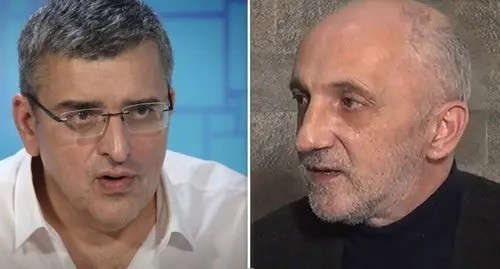
01 September 2021, 14:57
Analysts assess consequences of Georgia's refusal from EU's help
The Georgian authorities' refusal from the financial help of the European Union (EU), which was offered in exchange for reforms, threatens with a loss of balance in relations with the West and is at odds with the needs of the country's economy, which because of this risks to face investment outflow and unemployment increase, the Georgian analysts interviewed by the "Caucasian Knot" assert.
On August 31, ten Georgian NGOs issued a joint statement, in which they indicated Georgia's deviation from the Euro-Atlantic course. Human rights defenders believe that the statement of Irakli Garibashvili, the Georgian Prime Minister, about authorities' "refraining" from receiving the EU's help in the amount of 75 million euros means the ruling party's refusal to fulfil its obligations to the EU.
The "Georgian Dream" Party has decided to reject the EU's help due to the fear of losing power, Gela Vasadze, a political analyst, has stated. "In any case, the government will have money, since the natural resource rent for extraction of minerals remains, while once having lost power, the 'Georgian Dream' risks losing its incomes and chances to return to power in the future," Mr Vasadze told the "Caucasian Knot" correspondent.
The Garibashvili's decision to abandon the loan will lead to the loss of not 70 million, which the EU was ready to provide, but to bigger losses, said Giya Khukhashvili, an economist. "First of all, we'll see investment outflow, as investors will feel that Georgia is an unreliable partner. And this can cause both the loss of jobs and the fall of the national currency," the economist has explained.
This article was originally published on the Russian page of 24/7 Internet agency ‘Caucasian Knot’ on September 1, 2021 at 08:13 am MSK. To access the full text of the article, click here.
Author: Beslan Kmuzov, Galina Gotua Source: CK correspondents




